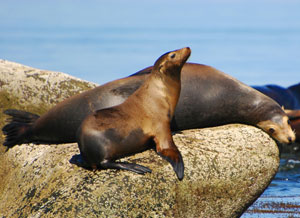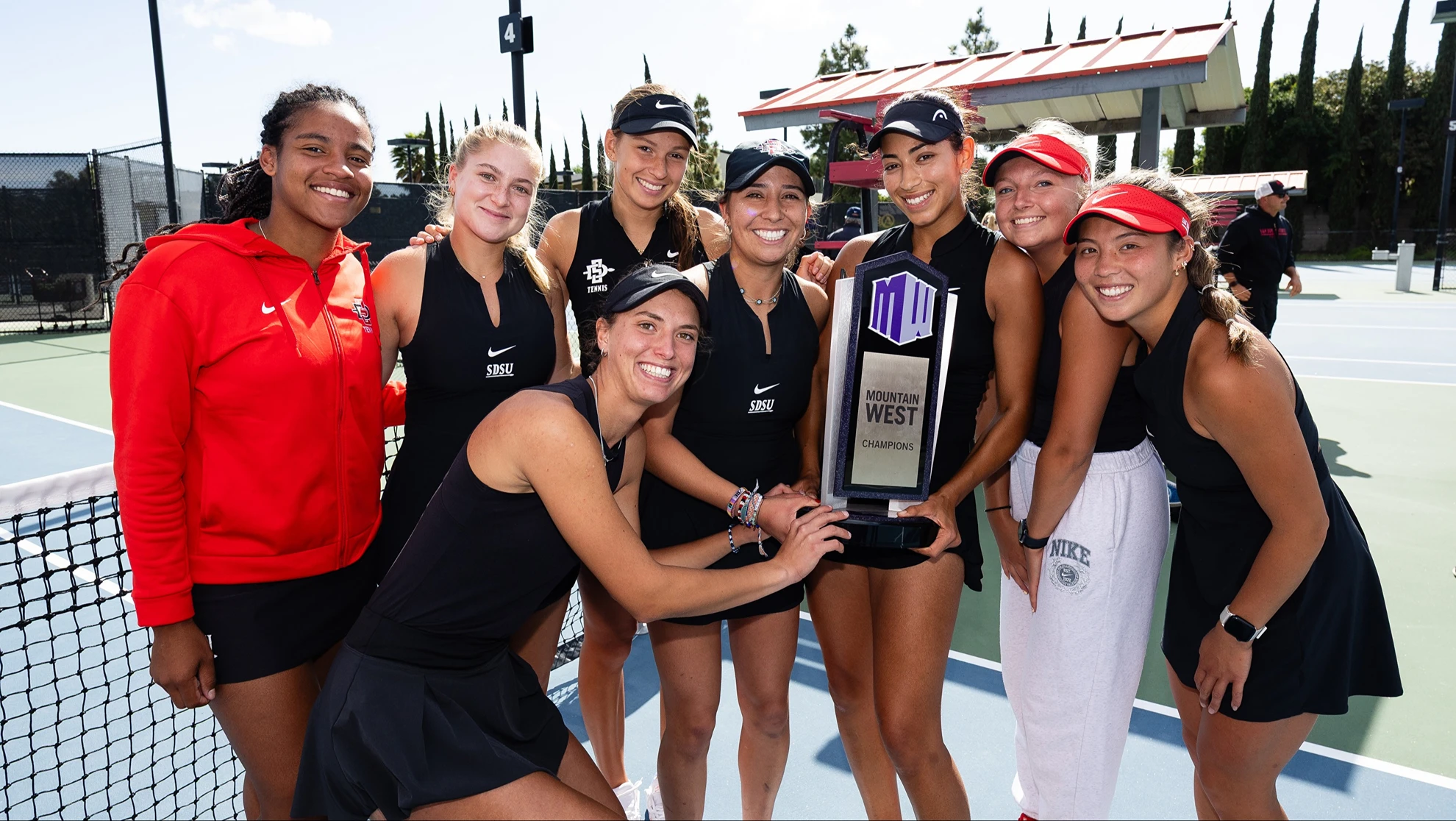Students Sequence California Sea Lion Genome
The students are SDSU's first undergraduate class to operate a next-generation DNA sequencer.

The genomic era is revolutionizing medicine and biology, and San Diego State University undergraduate students are learning how to use this cutting-edge technology by sequencing the entire genome of the California sea lion.
SDSU biology professor Elizabeth Dinsdale teaches a class using a “next-generation” DNA sequencer in collaboration with Roche 454 Lifesciences. The class is investigating the health of California sea lions and their environment.
Sequencing sea lion DNA a big job
In the first four weeks of the course, 21 students from ecology, biology and computer sciences generated more than three million high quality DNA sequences. In addition to the first parts of the genome of the California sea lion, the sequences include the whole genome of a previously un-sequenced bacterium and three microbial metagenomes from the kelp forest. A metagenome is a random sample of all of the microbial genetic material recovered directly from environmental samples.
“The technical skills these students will learn will enable them to be leaders in biotechnology and research industries of the future, key elements of the local San Diego and regional economy,” Dinsdale said.
The students will conduct the sequencing process from start to finish, which includes extracting DNA from samples, preparing the DNA libraries, amplifying the extracted DNA and finally loading and operating the sequencing machine.
A sequencing run provides about 1.2 million sequences, and many runs will be required to discover the major attributes of the California sea lion genome, which is estimated to be similar in length to the human genome. These marine mammals add to the complexity and beauty of the highly valued and productive coastal ecosystems of California.
Given the enormity of this task, SDSU students have joined forces with an international collaboration, led by Dinsdale, which includes scientists from Hubbs-SeaWorld Research Institute, Universidad Autónoma de Baja California (Autonomous University of Baja California) and Centro de Investigación Científica y de Educación Superior de Ensenada (Ensenada Center for Scientific Investigation and Higher Education).
Relationship between sea lion and its environment
“The multi-national and multi-disciplinary collaboration provides opportunities to describe the genetic adaptations that allow California sea lions to thrive in the complex coastal marine habitats of the eastern Pacific Ocean,” Dinsdale said.
The engagement of undergraduate and graduate students in these collaborative studies will also add directly to the research efforts of Dinsdale’s lab, which uses next-generation sequencing technology as one of the tools to investigate the interactions between the large and small organisms within an ecosystem.
More on Dinsdale's research
In a previous analysis of 15 million metagenomic sequences, published in Nature in 2008, Dinsdale described the metabolic profile of microbial communities across nine biomes. In the kelp forest example, Dinsdale, students and collaborators will be able to identify how microbes and California sea lions interact and influence kelp forest dynamics and health.
“I am interested in studying the environment in its entirety,” Dinsdale said. “The sequencing technology has enabled me to understand how the small things affect environmental health; now together with undergraduate students we have the capacity to sequence multiple components of the kelp forest and understand how they interact.”



